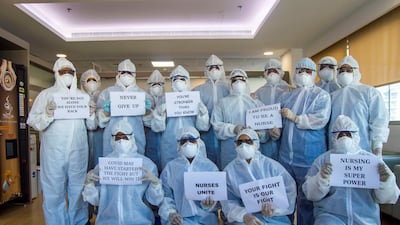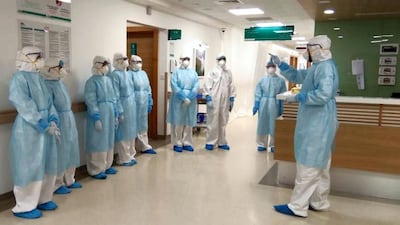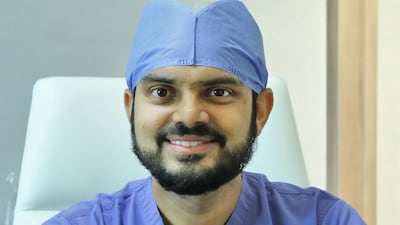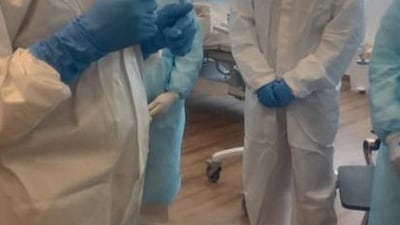Researchers in the UAE hope to understand why Covid-19 is more severe in some people.
The virus can cause a wide range of symptoms, from barely a runny nose in some people to life-threatening complications, such as pneumonia and blood clots, in others.
About one third of sufferers remain completely asymptomatic.
But, aside from known risks, such as hypertension and diabetes, the reason why people respond so differently to the infection is largely a mystery.
A team from several universities and institutions in the UAE will study whether a person’s genes and proteins make them more susceptible to developing serious complications.
"On average, it takes five to six days for the symptoms to show and people with mild symptoms can generally take care of themselves at home,” said Dr Habiba Alsafar, a member of the team. He is associate professor in the Department of Genetics and Molecular Biology, and director of Khalifa University Centre for Biotechnology.
"However, for patients with underlying health problems, the infection can prove fatal," said Dr Alsafar.
“Our team is trying to establish how other genes and proteins that explain the predisposition of certain patients to go completely asymptomatic and those [who] respond poorly to the infection."
The team is made up of experts from Khalifa University of Science and Technology, UAE University, Abu Dhabi Health Services Company, Dubai Health Authority, and the University of Sharjah.
They will work on projects that study how the immune system responds to the infection.
One area of interest is RNA, which is involved in turning genetic information into the body's proteins. They will also seek to identify biomarkers that could suggest why patients stay asymptomatic, while others develop mild or moderate symptoms.
Researchers in the UAE are already working on projects related to the virus.
A team from Abu Dhabi's Cleveland Clinic and Khalifa University joined forces to launch a study to discover how long Covid-19 can travel through the air.
Their work involves spraying a colloid comprised of silicon nanoparticles to simulate a patients' cough.
A colloid is a mixture in which very small particles of one substance are distributed evenly throughout another substance.
The nanoparticles generated glow red under ultraviolet light, allowing the team to see how they spread.
Researchers at Khalifa University are also involved in tracking wastewater to predict the spread of the disease among the population.
Studies show that people infected with the virus, even those who do not develop symptoms, shed it through their excrement.
And because levels of Sars-Cov-2 would be expected to mirror the prevalence of infections in the population, experts said studying wastewater would give authorities an indication of how widespread the virus was in the community.
The researchers said the work is “tantamount to essentially testing everyone who has contributed to that sample – in other words, a way of mass testing”.
A Covid-19 field hospital opens in Dubai – in pictures











